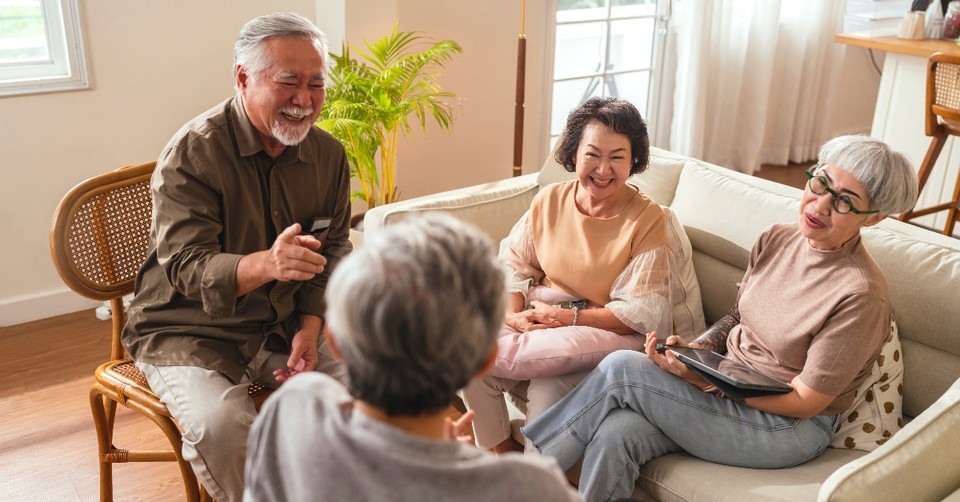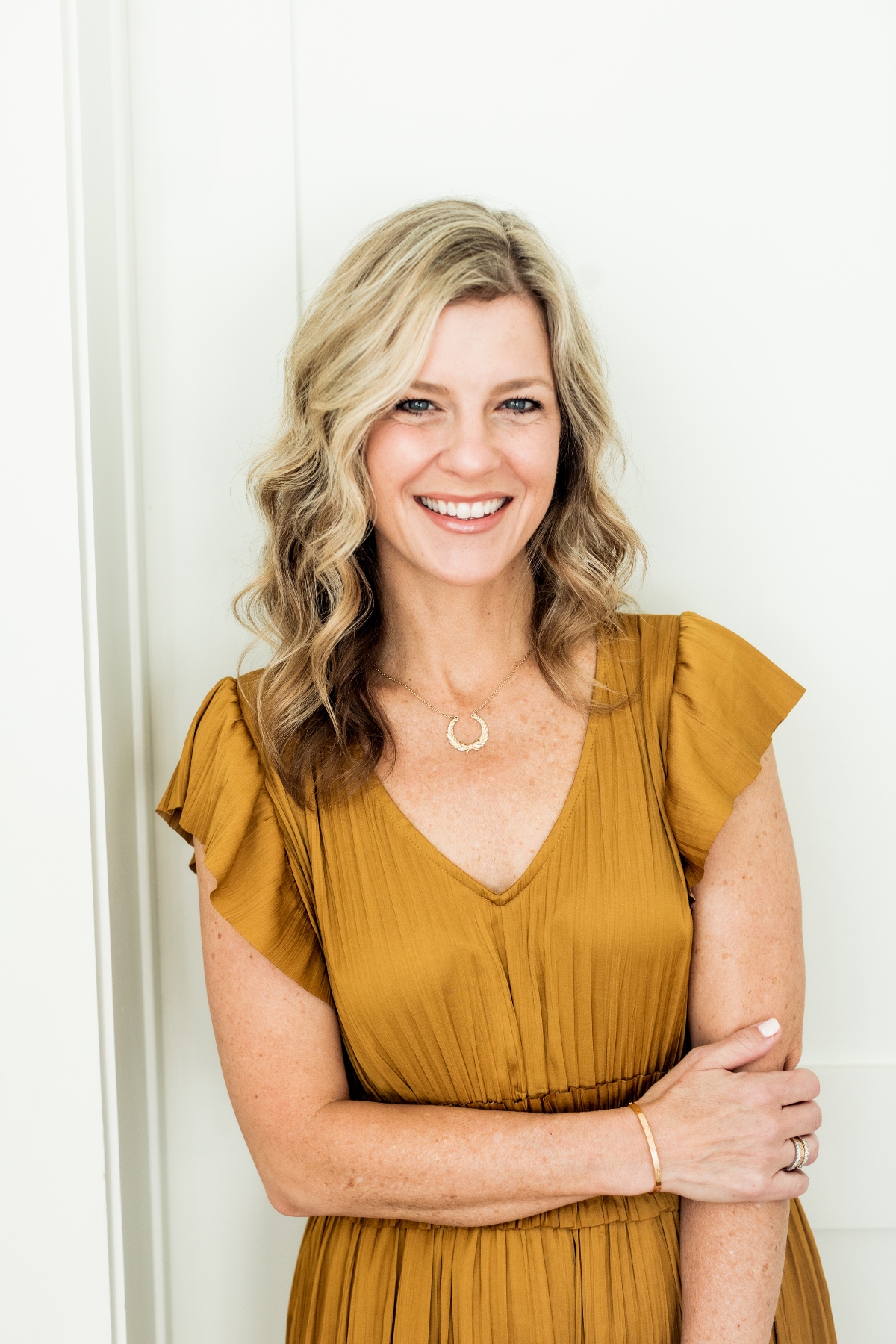5 Ways to Create a Christian Community

Be slow to fall into friendship; but when thou art in, continue firm and constant (SOCRATES).
It’s one thing to confess my sin and shame to Gabe and invite him into my deepest places of pain. He’s my husband of 25 years, who knows me better than anyone else, including myself, on some days.
As I invited him into the raw and fragile places of my life, I found the palpable healing that comes when nothing is hidden. We felt a new level of intimacy — less reacting, more listening and learning.
This inspired me to press further. Did I bring a similar level of vulnerability into my friendships? Did my closest friends know my struggles?
1. Invite Others In
After some reflection, I determined to invite others in. I simply made a commitment to be both honest and honoring of others in my response if someone asked.
I would no longer look away and choke out the word, “Fine,” or worse, “Great!” when I could offer a truer, more vulnerable response.
I made it my aim to make eye contact with integrity where the inside matched the outside and to give others the safety to do the same.
The only way I could be this raw and real on the regular was if I’d already done it first before God. The Lord puts all our hardships in perspective with love when we cast our anxieties on him (1 Peter 5:7).
He tells us to count it joy (yes, you heard that right) when trials come because facing trials makes us perfect and complete, lacking nothing (James 1:2–4). He then begins to comfort us so we can comfort others (2 Corinthians 1:4). I decided to put true vulnerability to the test.
One Wednesday in February, I gathered with friends to celebrate another birthday.
We’d been apart for months and needed some catching up, so I asked questions, not sure if I’d be able to keep it together if I had to share. Good friends won’t let you stay silent, though.
Everyone turned in my direction, and it was clear they wanted an update. Before I could get a sentence out, I broke down. When I found my words, I said, “It’s been the hardest winter I can remember.” As I cried, they surrounded me.
We were in an extended gray winter in Nashville, and I couldn’t get out from under the fog of it. Our first snow fell on December 1, and by mid-January, we’d had three major snowfalls that shut down our schools and city for days.
It was the damp kind of winter that chills you to the bone, where you can’t get warm unless you’re in front of a roaring fire.
There were glimpses of sunny days, but those passed with what seemed like perpetual waves of cloud-covered cold fronts. As the months wore on, I felt the familiar ghost over my shoulder —seasonal affective disorder.
2. Accept Comfort from Others
These friends, who are very good at gently asking the right questions, wanted details. I worked mostly from home; the house was unruly, and it felt like a success to take my daily walk in the woods or read a brain book. But depressed? Yes. That’s exactly how I felt. It took friends holding up a mirror for me to see and speak that truth.
I didn’t feel attacked by their questions; I felt guided. Through their kindness, I was able to acknowledge that I was feeling the symptoms of depression. I hadn’t struggled with depression since my dad passed away four years earlier and our first move to New York City eight years before that.
Since I hadn’t said any of this out loud to anyone other than Gabe, I wasn’t sure how it would be received. My friends stayed with me. They kept asking and listening, and between bites of birthday sprinkle cake, something surfaced from the deep.
I couldn’t stop crying, and it wasn’t the gentle kind of cry either. It was a guttural grief I couldn’t pinpoint until I felt led to the source of my pain. As I verbally processed with my friends, I was able to invite them in.
I kept practicing inviting others in, and in turn, they invited me in.
3. Share Life Together
A couple of weekends later, I met three friends in Colorado for a work trip. We arrived a day early so we could catch up on the past six months. We dove in deep and fast, sharing what God had been doing in our lives.
One friend shared ongoing months of sporadic health issues that were crippling her creative writing, without any answers or resolution. Another had ended a long relationship she had fully embraced for almost a year and was trying to process her grief.
The third friend was in the middle of a life transition that was changing everything. Even with new ventures on the horizon, she was grieving the end of an era for her entire family. This time, sharing my own struggles was even easier.
4. Read Scripture Together
It has taken me decades to understand I don’t really need answers to every life problem. When life goes sideways, I need to be met with eye contact, curiosity, a listening ear, and witness. I need to be reminded that I’m not crazy and I’m never alone.
From the opening pages of Scripture, God shows how he wants to be with us. In the Garden of Eden, God walked with Adam and Eve in the cool of the evening.
In the exodus, God showed Israel his presence by leading them through the desert as a pillar of fire by night and a pillar of cloud during the day. In the gospels, Jesus promised his disciples, “Surely I am with you always, to the very end of the age” (Matthew 28:20).
We were not made to suffer alone.
5. Feel Free to Be Vulnerable
Maybe you’ve found yourself in a place of deep depression or sadness. Maybe you feel anxious. Maybe you simply feel as if you’re at a crossroads and you don’t know exactly what to do. If that’s you, know this: you are less resilient when you bottle it up.
Give vulnerability and empathy a chance. Invite others into your struggle and enter their struggles too. In doing so, you’ll find that these exchanges lead to healing, which brings greater resilience.
Order the Resilient Life Journal today to dive deeper.
For further reading:
What Does the Bible Say about Community?
10 Ways to Evangelize in Your Local and Online Communities
How to Be Wise When Choosing Your Friends
What Is the Importance of Having a Spiritual Family?
Photo Credit: ©iStock/Getty Images Plus/whyframestudio


Originally published September 26, 2023.







